- Home
- /
- Healthy Meal
- /
- Diets
- /
- DASH Diet
- /
- Reducing high blood pressure
The Dietary Approaches to Stop Hypertension (DASH) diet is a plan of eating that is designed to help reduce high blood pressure (hypertension). The diet emphasizes whole, nutrient-dense foods and limits processed foods, and saturated fats.
- Main products of DASH diet?
- What is the Hypertension?
- Factors that can contribute to the high blood pressure
- DASH diet must be unique for you to enhance the reducing high blood pressure
- Checking your diet regularly is important for reducing high blood pressure
- History of DASH diet
- Some inconsistencies in the field of nutrition about reducing blood pressure
- Comparison with other diets
- Sources of food are important as well for reducing high blood pressure
Main products of DASH diet?
The DASH diet is based on the following principles, that includes eating of:
1. plenty of vegetables: The DASH diet encourages consuming a variety of colorful fruits and vegetables, as they are rich in nutrients and fiber.
2. whole grains, that provide essential vitamins and minerals, as well as fiber, which can help lower cholesterol levels and improve digestive health.
3. lean protein sources: The DASH diet recommends consuming lean proteins, such as chicken, fish, beans, and lentils, rather than red meat, which can be high in saturated fat.
4. less processed foods: Processed foods are often high in added sugars, salt, and unhealthy fats. The DASH diet incentives limiting these foods and instead opting for whole, nutrient-dense foods.
5. less sodium intake: The DASH diet recommends restricting sodium intake to no more than 2,300 milligrams per day, or even less for those with high blood pressure.
Research has shown that the DASH diet can lead to improvements in cholesterol levelsn and blood pressure, and overall heart health. It has also been associated with a lower risk of developing certain chronic diseases, such as certain types of cancer and type 2 diabetes .
In addition to its health benefits, the DASH diet is a relatively easy and flexible way of eating, as it does not require eliminating any particular food group or following strict meal plans. Instead, it focuses on incorporating more whole, nutrient-dense foods into the diet and limiting processed and unhealthy foods.
If you are interested in the DASH diet, it is important to speak with a healthcare professional, such as a registered dietitian, to ensure that it is appropriate for your individual needs and health status. They can help you create a meal plan that is tailored to your preferences and provide guidance on making healthy food choices.
What is the Hypertension?
Hypertension, or high blood pressure, is a condition where the force of blood against the walls of the arteries is consistently elevated. Over time, this increased pressure can damage the walls of the arteries and lead to serious health issues, including kidney failure, heart disease, stroke.
Hypertension often has no symptoms, which is why it is sometimes called the “silent killer.” The only way to know if you have high blood pressure is to have it checked by a healthcare specialist.
Factors that can contribute to the high blood pressure
There are many factors that can contribute to the development of hypertension, including genetics, age, and lifestyle habits such as poor diet, lack of exercise, and smoking. While some risk factors cannot be changed, such as genetics and age, many can be modified through lifestyle changes.
Following a healthy diet, such as the DASH diet, is one way to help prevent and manage hypertension. It is also important to do regular physical activity, maintain a healthy weight and limit alcohol intake.
If you have been diagnosed with hypertension, it is important to work closely with your healthcare team to manage your condition. This may involve taking medication, making lifestyle changes, and monitoring your blood pressure regularly.
Overall, hypertension is a serious health condition that requires attention and management. By following a healthy lifestyle, including a nutritious diet like the DASH diet, you can help prevent and manage hypertension, reducing your risk of developing serious health problems.
DASH diet must be unique for you to enhance the reducing high blood pressure
While following a healthy diet like the DASH diet can be beneficial for managing hypertension, it is also important to recognize that everyone’s nutritional needs are unique. Therefore, it is important to regularly check your diet and adjust it accordingly based on your own needs and the latest research.
Nutritional needs can vary based on a variety of factors, such as gender, activity levеl, age and overall health. For example, pregnant women and athletes may require additional nutrients compared to the general population. Additionally, new research is constantly emerging regarding the benefits and risks of different dietary patterns and specific nutrients.
It is important to stay informed about the latest research on nutrition and hypertension, and to work with a healthcare specialist to create an individualized diet plan. This can help ensure that your diet is providing the nutrients you need to manage your hypertension and support overall health.
Checking your diet regularly is important for reducing high blood pressure
Regularly checking your diet can also help you identify areas where you may need to make adjustments. For example, you may find that you are consuming too much sodium or not enough potassium, both of which can affect blood pressure levels. Keeping track of your dietary intake can help you identify patterns and make changes as needed.
Overall, while following a healthy diet like the DASH diet can be beneficial for managing hypertension, it is important to recognize that there is no one-size-fits-all approach to nutrition. By staying informed about the latest research and working with a healthcare professional to create an individualized diet plan, you can ensure that your diet is providing the nutrients you need to support your health and manage your hypertension.
History of DASH diet
The DASH (Dietary Approaches to Stop Hypertension) diet was created in the 1990s by the National Institutes of Health (NIH) in the United States. The goal of the DASH diet was to develop a dietary approach that could help decrease blood pressure levels and reduce the risk of hypertension-related health problems, such as heart disease and stroke. The DASH diet highlights whole, nutrient-dense foods such as vegetables, whole grains, fuits, lean protein sources, and low-fat dairy products while limiting processed and high-sodium foods. Since its creation, the DASH diet has become a widely recognized dietary pattern for managing hypertension and improving overall health.
Some inconsistencies in the field of nutrition about reducing blood pressure
While the DASH diet has gained popularity over the years, there is still incoherence in the field of nutrition about the best approach to reduce hypertension. Some studies have suggested that a low-carbohydrate, high-fat diet may be equally effective for managing blood pressure levels and reducing the risk of cardiovascular disease. Other studies have found that plant-based diets may offer similar benefits to the DASH diet.
One potential reason for these inconsistencies is that nutrition research can be complex and difficult to conduct. Factors such as individual differences in genetics, lifestyle habits, and other health conditions can all impact the effectiveness of a particular diet. Additionally, many studies rely on self-reported dietary intake, which can be prone to error and bias.
Despite these inconsistencies, the DASH diet remains a well-established dietary approach for managing hypertension and promoting overall health. It is important to note, however, that dietary recommendations should be tailored to an individual’s unique health needs and goals, and should be made in consultation with a qualified healthcare provider or registered dietitian.
Comparison with other diets
When comparing the DASH diet to other popular diets, there are both similarities and differences. For example, the Mediterranean diet, which is also focused on whole foods and healthy fats, has been shown to have similar benefits for cardiovascular health and reducing the risk of chronic diseases. Both diets emphasize fruits, vegetables, whole grains, and lean protein sources, while limiting processed and high-sodium foods.
In contrast, the ketogenic diet is a high-fat, low-carbohydrate diet that has gained popularity for weight loss and managing conditions such as epilepsy. While some studies have suggested that a ketogenic diet may be effective for decreasing blood pressure levels and improving cardiovascular health, other studies have raised cares about the long-term effects of a high-fat diet on health.
Ultimately, the effectiveness of a particular diet will depend on a range of factors, including an individual’s unique health needs and goals. It is crucial to work with a qualified healthcare specialist or registered dietitian to develop a personalized nutrition plan. It must consider your health history, lifestyle habits, and dietary preferences. Additionally, it is important to approach any diet with caution and avoid restrictive or extreme dietary patterns that could potentially harm your health in the long-term.
About other diets you can read here
Sources of food are important as well for reducing high blood pressure
In addition to the specific composition of a diet, the origin of the foods we eat is also an important factor to consider when trying to optimize health and nutrition. For example, foods that are grown and produced locally may be fresher and more nutrient-dense compared to foods that have traveled long distances or have been heavily processed.
In recent years, there has been a growing interest in supporting local agriculture and promoting sustainable food systems. This has led to an increased focus on farmers’ markets, community-supported agriculture programs, and other initiatives that connect consumers with local growers and producers.
Choosing locally-sourced and sustainably-produced foods can also have a positive impact on the environment by reducing the carbon footprint associated with food production and transportation. By supporting local agriculture, we can also help to preserve farmland and support rural communities.
In addition to considering the origin of our food, it is also important to pay attention to how our food is produced and processed. Opting for organic and non-GMO foods may reduce exposure to harmful chemicals and synthetic pesticides, while choosing minimally processed foods can help to preserve the natural nutrients and fiber found in whole foods.
Overall, a diet that emphasizes whole foods, and locally-sourced and sustainably-produced foods can help to promote health and nutrition while also supporting the environment and local communities.
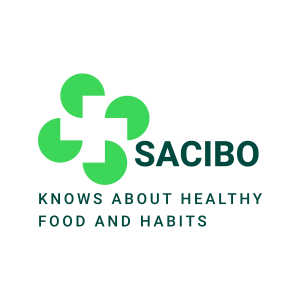























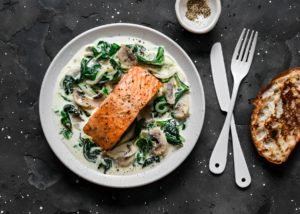



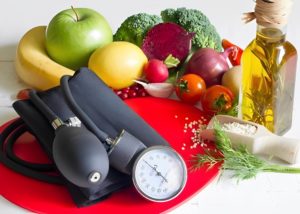











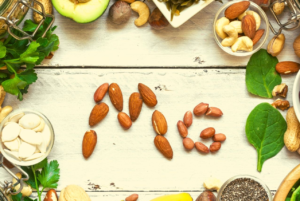






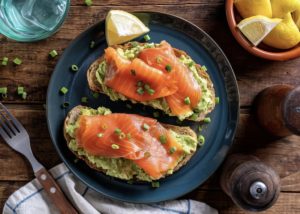



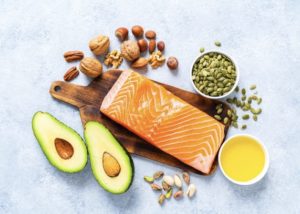












0 Comments